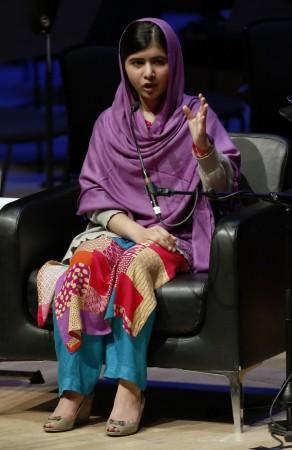
While Nobel Peace Prize winner Malala Yousafzai has a day dedicated to her by the United Nations, in her home country of Pakistan, a school association chose to observe a "I am Not Malala" Day instead.
In a move to protest Malala's alleged support for British author Salman Rushdie in her book, the All Pakistan Private Schools Federation observed "I am not Malala" Day on Monday.
The school association claims that Malala, whose biography "I am Malala" released last year, has written in favour of Rushdie, who had enraged certain sects in the Muslim community for his controversial writing in his book "The Satanic Verses."
Blaming Malala of belonging to the same "ideological club" as Rushdie's, some school associations even accused her of "representing the West".
"Everything about Malala is now becoming clear. To me, she is representing the West, not us," Adeeb Javedani, president of the All Pakistan Private Schools Management Association, told AP.
The same school association had condemned the book last year and had even banned the book from about 40,000 schools in the country.
"We severely condemned the chapter of the book in which Salman Rushdie's book has been mentioned as freedom of expression by Malala," Mirza Kashif Ali, the president of the schools' federation, told AFP. He accused the 17-year-old Malala of being in a "nexus with Salman Rushdie and Taslima Nasrin".
Rushdie's book "The Satanic Verses" had created a major stir in 1989 and he faced the wrath of Iranian leader Ayatollah Ruhollah Khomeini, who issued a fatwa against him, accusing him of blaspheming Islam and Prophet Mohammed in the book.
On the other hand, Bangladeshi author Taslima Nasrin had to leave her country in 1994 after radical Muslims accused her of blasphemy over her novel "Lajja" (Shame).
Malala, who had been shot by the Taliban in 2012, was recently awarded the Nobel Peace Prize for her campaign for education rights of children, a prize that she shared with Indian child rights activist Kailash Satyarthi.
She currently lives in Britain.















